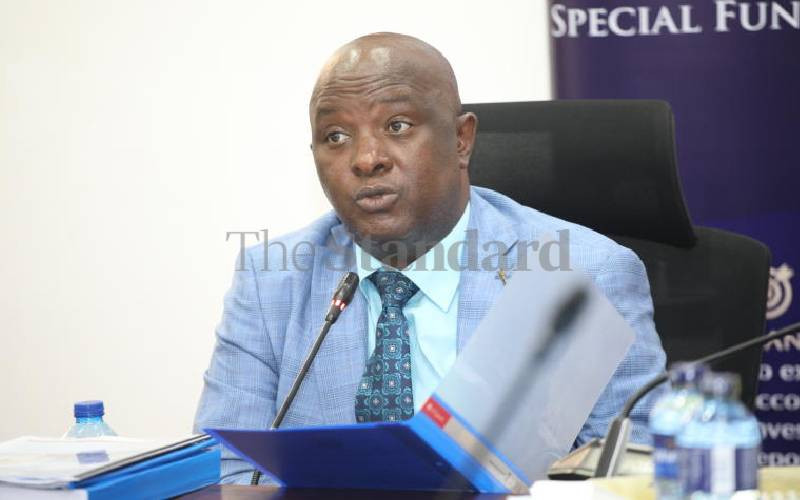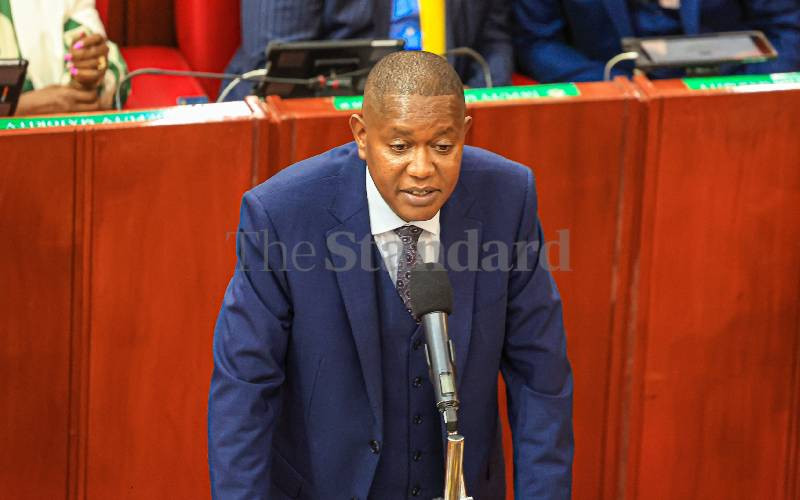NAIROBI, KENYA: The Office of the Auditor General has appointed an eleven-member working group to conduct the social economic audit of the constitution passed in 2010. The formation of the committee was approved by the National Assembly in February this year to provide the National Assembly with the necessary information and analysis to aid the execution of Parliament’s oversight mandate.
The working group that will be chaired by the Auditor General Edward Ouko will among others seek to assess the impact of the implementation of the constitution to the nation’s economy and in particular its public finances. The committee is also expected to make a rapid assessment of the impact of the implementation of the constitution on public institutions and evaluate the social impact resulting from the implementation of the constitution.
A key objective of the working group is to make recommendations to the National Assembly on potential measures that could better enhance prudent management of the country’s public resources.
The group will also “investigate, determine and advise on any relevant matter consequential or incidental to the foregoing”, according to a notice published in the latest issue of the Kenya Gazette. Members of the committee include Lady Justice Linnet Ndolo, Dr Abdirizak Nunow, Susan Mang’eni, Mwarapayo A. Wa-Mwachai, Dr Elizabeth Owiti, Erastus Wamugon and Equity Bank’s chief operating officer Dr Julius Kipng’etich. The joint secretaries will be Mr Philip Kinisu as the head of the secretariat assisted by Milcah Ondiek and Wanjiku Wakogi.
According to the notice, the working group shall work under the Office of the Auditor-General and report to the National Assembly. It is expected to regularly consult, where it deems necessary, the National Assembly through the Budget and Appropriations Committee.
“The duration of the working group shall be a period of seven months with effect from publication date of this notice,” said Mr Ouko in the notice dated 11 August 2014. The secretariat of the working group shall be based at the Office of the Auditor-General at Anniversary Towers.
The working group was necessitated by the fact that the Constitution of Kenya 2010 introduced fundamental changes to the country’s governance system that have significantly altered the Kenya’s political and socioeconomic landscape.
In particular, the new Constitution established a bicameral parliament, an extensive bill of rights, a devolved system of government and independent offices and commissions.
The Parliamentary Budget and Appropriations Committee felt that the new set of institutional arrangement had taken full effect during the last four years that the Constitution has been under implementation but there has not been any comprehensive analysis or audit of the impact of the constitution on the country’s wellbeing.
“Undertaking such a socio-economic audit is now timely in light of the expansion of institutions and services and also taking stock of the experience gained in working with the current document during this period of transition,” said Parliamentary Budget and Appropriations Committee chairman Mutava Musyimi.
 The Standard Group Plc is a
multi-media organization with investments in media platforms spanning newspaper
print operations, television, radio broadcasting, digital and online services. The
Standard Group is recognized as a leading multi-media house in Kenya with a key
influence in matters of national and international interest.
The Standard Group Plc is a
multi-media organization with investments in media platforms spanning newspaper
print operations, television, radio broadcasting, digital and online services. The
Standard Group is recognized as a leading multi-media house in Kenya with a key
influence in matters of national and international interest.
 The Standard Group Plc is a
multi-media organization with investments in media platforms spanning newspaper
print operations, television, radio broadcasting, digital and online services. The
Standard Group is recognized as a leading multi-media house in Kenya with a key
influence in matters of national and international interest.
The Standard Group Plc is a
multi-media organization with investments in media platforms spanning newspaper
print operations, television, radio broadcasting, digital and online services. The
Standard Group is recognized as a leading multi-media house in Kenya with a key
influence in matters of national and international interest.








